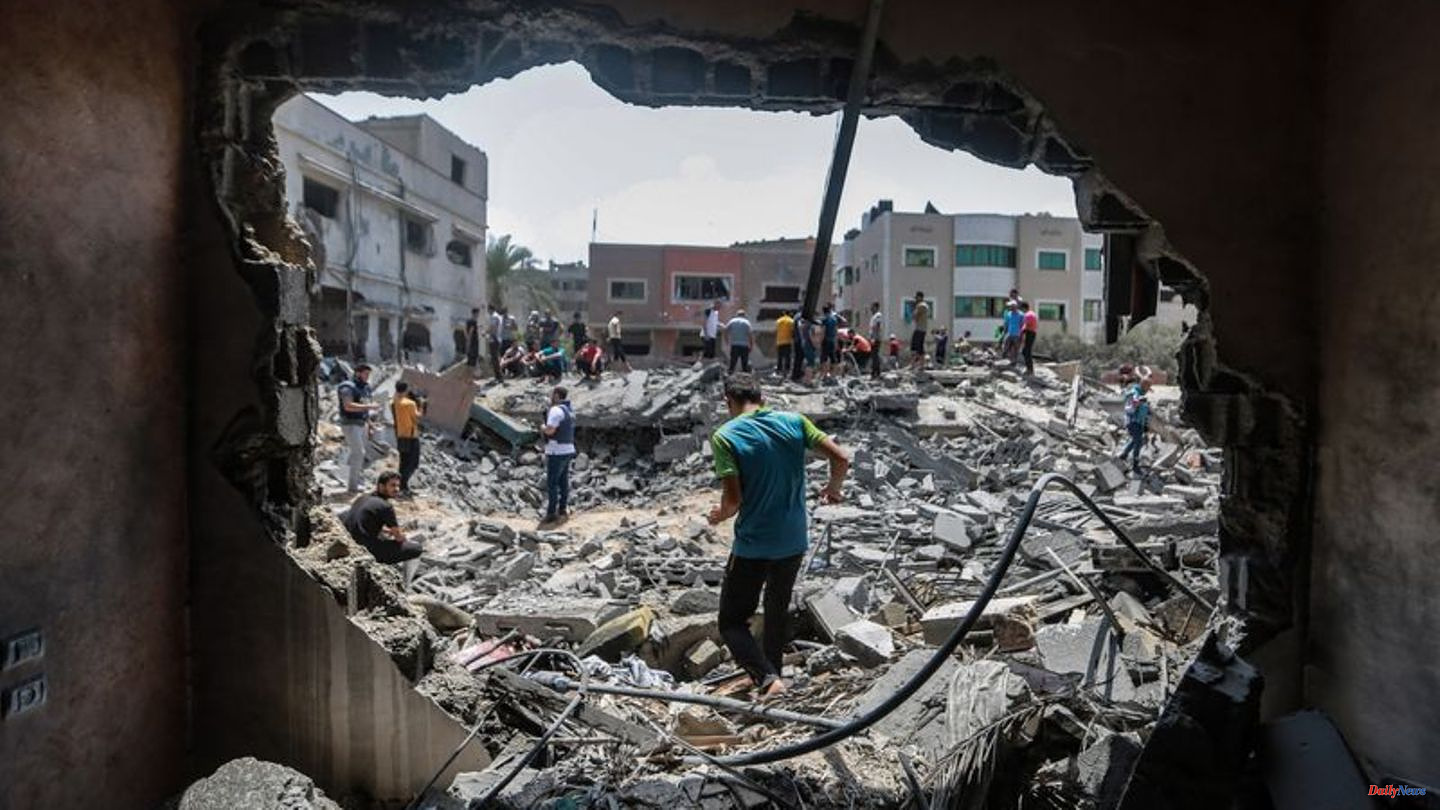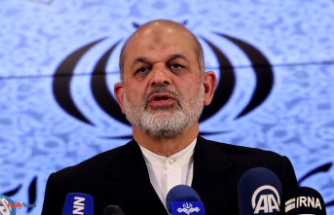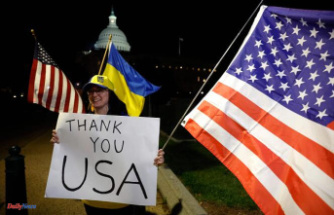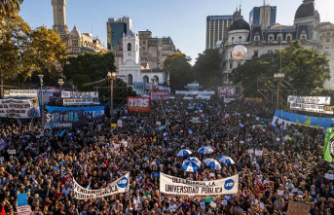Rocket attacks on Israel continued this morning after the targeted killing of a Palestinian militant leader in the Gaza Strip. Sirens could be heard in several cities in the south of the country, the military said.
According to a spokesman, more than 190 rockets have been fired at Israel since Friday. They fell on open ground or were intercepted by the Iron Dome missile defense system. Around 36 rockets landed inside the Gaza Strip. Warning sirens could also be heard in several Tel Aviv suburbs in the evening. Israel's armed forces are preparing for a longer deployment. "The military is prepared for a week's operational activity, as directed by the political level and the chief of staff," the military said.
Israeli forces had previously killed the military chief of the militant Palestinian organization Islamic Jihad (PIJ) in the Gaza Strip, Taisir al-Jabari. According to the military, the high-ranking commander was responsible for numerous rocket attacks from the Gaza Strip. Islamic Jihad is classified as a terrorist organization by the EU and the US.
"We are attacking Tel Aviv and the cities of the center and the surrounding area with more than 100 rockets," said the organization's military arm late Friday evening. This is the answer to Al-Jabari's assassination. According to Israeli media reports, more than 60 rockets reached the country by midnight.
In the West Bank, there were 20 arrests during anti-terrorist raids during the night, 19 of them linked to Islamic Jihad, according to the Israeli military. In addition to military posts, two weapons production sites and six rocket launchers were also attacked in the Gaza Strip.
Dead and injured on the Palestinian side
According to Palestinian sources, at least eleven people have died since Friday, including Al-Jabari, a five-year-old child and other PIJ members. More than 80 people were injured.
"Israel is not interested in a broad operation in Gaza, but it is not afraid of it either," Israeli Prime Minister Jair Lapid said on Friday. The Israeli government will not allow terrorist organizations to set the agenda in the Gaza border towns and threaten Israeli citizens. "Anyone who wants to attack Israel must know that we will get to him." Secretary of Defense Benny Gantz approved the mobilization of 2,500 reservists in the evening.
In 2019, Israel had already specifically killed al-Jabari's predecessor, jihadi military chief Baha Abu al-Ata. At that time there were massive rocket attacks from the Gaza Strip on Israeli locations and counterattacks by the Israeli Air Force in the coastal strip. After a few days, a ceasefire was agreed with the help of Egyptian and United Nations negotiators.
According to the Israeli army, other jihad members were targeted in addition to Al-Jabari. They are said to have prepared an attack against Israeli civilians. In addition, a weapons production facility and a missile launch facility were attacked, as well as a military post.
long-lasting conflict
The escalation was preceded by the arrest of a leader of Islamic Jihad in the West Bank, Bassem Saadi, during an Israeli anti-terrorist operation on Monday. The jihad is closely linked to Israel's archenemy Iran and regularly carries out rocket attacks on Israel from the Gaza Strip. For several days, the Israeli military cordoned off areas on the edge of the coast for fear of retaliatory attacks and increased the alert.
During the Six-Day War in 1967, Israel conquered the West Bank and the Gaza Strip, among other things. Hamas, classified by the EU as a terrorist organization, violently seized power in 2007. Israel then tightened a blockade of the area, supported by Egypt. Both countries justify the measure with security interests. Hamas is classified as a terrorist organization by the European Union, Israel and the United States.
Targeted killings are controversial, with the United Nations, among others, complaining that it blurs legal boundaries. They also speak of a violation of international law.












